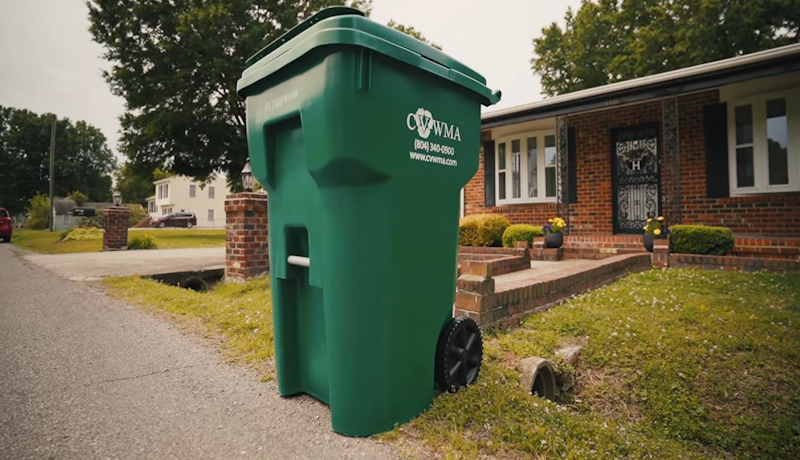
How is your waste sorted
According to a junk disposal report, in 2021, of all buried materials from the residential sector in Virginia, only 21% was real waste.
In the trash, bad habits! To encourage their population to properly sort their garbage, US states are starting to impose fines on offenders. A measure set to expand as the environmental and financial costs of poor sorting increase from year to year.
For two years, we have documented, raised awareness about waste management and junk disposal, made tours to inform… but there comes a time when you reach the end of the process. It now intends to impose fines on the people of Virginia who persist in poorly sorting their garbage.
This power, which the management could already exercise, now extends to the city of Richmond in the state of Virginia. When you repeat the same thing five or six times and there is no change, it is time to think about imposing sanctions.
A squad of green agents will inspect the contents of the bins and dumpsters to ensure proper sorting of residual materials. In the event of an infraction, offenders will be given simple courtesy tickets. If, after a few reminders, the person or establishment continues to sort their residual materials incorrectly, the authority intends to apply financial sanctions.
These will vary, for individuals, between $250 and $300 for a first offense. In the event of a repeat offense, the amount doubles to between $500 and $600, plus fees. The fines are heavier for businesses, establishments and industries. The first offense, for them, will cost between $500 and $600; the second, between $1000 and $1200, plus fees.
Sorting delinquency represents a real problem, particularly in remote regions, where transport and landfill costs quickly add up to the bill. It can cost $140, or even $145, to bury a ton. Meanwhile, selling a ton of cardboard or metal not only avoids landfill fees, but also earns up to $200.
From diapers to recycling
The authority of Virginia notes, in its 2021 report, that of all buried materials from the residential sector, only 21% was real waste. This therefore means that out of more than 7,600 metric tons of materials thrown away by residences in Richmond, approximately 6,000 tons should have ended up in recycling, compost or at the ecocenter.
In its report, the state authority also notes that half of the residences in its territory never took out the brown bin reserved for compost in 2021. In its blue recycling bins, it found 12% of contaminants — or, in total, 560 tonnes of prohibited materials. It is not uncommon to find, jumbled with cardboard, glass and plastic, baby diapers, food, clothing, even tank transmissions.
As for construction materials, 20% ended up in Virginia landfill including Enrico landfill, even if it was still possible to recycle them.
A waste management precedent in Richmond
The Virginia EPA has also decided to impose financial sanctions on offenders. Since the start of summer, it has had the power to issue fines in the event of poor waste sorting.
There is a parallel with what we do in road safety. It’s constant work, we can’t say that because we raised awareness once, everyone knows it. As soon as you let go, bad habits take over.
The state of Virginia devotes $13.2 million to the management of its residual materials, out of a budget of 22. The costs of transporting waste to the local landfill sites are huge. The cost as such, yes, it’s annoying, but it’s really the overall loss that is disturbing. For those who follow us, all these little elements will end up making an important whole, at some point. It’s everyone’s environment.
Symbolic junk disposal fines
The city of Richmond, VA has decided to impose symbolic fines of up to $50 in the event of a first offense, $100 in the event of a repeat offense and $150 in the event of a third offense. The sanction will remain the tool to force the hand of those who do not want to understand and who will never understand. For others, Richmond focuses instead on support to encourage good habits.
Waste management experts focus first and foremost on raising awareness, particularly among vacationers, who are increasing the volume of residual materials by 32% in just five months. The governments could do more to facilitate citizen sorting.
We were not brilliant enough, in Virginia, to adopt the same bin colors everywhere. Any resident has a green bin for recyclables, but when he arrives in Gaspésie, the green bin is used for oil waste somtimes. In addition, the display could be simplified. At some point, when you have 32 different kinds of plastic, it’s also normal for people to feel a little lost.